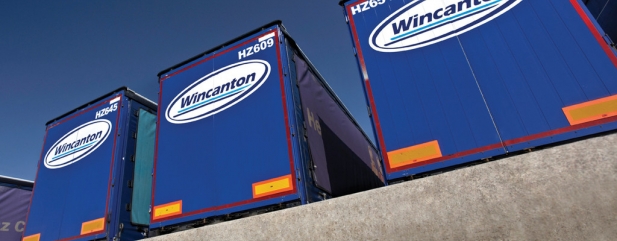Archived article
Please note that tax, investment, pension and ISA rules can change and the information and any views contained in this article may now be inaccurate.
Logistics firm set for re-rating after completing turnaround

As the largest British logistics company, Wincanton (WIN) received plenty of media coverage in the first quarter of the year as the nation prepared itself to exit the European Union on 29 March.
With 14.3m square feet of warehousing space across more than 200 locations and a fleet of 3,600 vehicles, Wincanton was a prime beneficiary of the stock-piling frenzy which saw companies and consumers hoard everything from drugs and machine parts to mozzarella sticks and Magnum ice creams.
On top of the Brexit-induced rush of orders, Wincanton won several new contracts with high-profile customers such as Co-op, EDF Energy, HMRC and Weetabix as well as extensions or renewals of existing contracts with major clients including Asda, Halfords (HFD) and Lucozade Ribena Suntory.
The firm is in a materially stronger financial position than it was four years ago with debt down to just £26m or 0.3 times earnings before interest, taxes, depreciation and amortisation (EBITDA) versus £202m or 3.1 times EBITDA in 2015.
Also a more disciplined approach to winning contracts, a move into higher-value areas of logistics like e-commerce and tighter cost management means margins have grown to an all-time high of 4.8%.
With the turnaround complete, a new chairman was appointed last August and a new chief executive is due to start this September with a focus on growing the firm’s revenues.
At the full year results in May, the chairman promised to ‘deliver much better value for shareholders in the years ahead’.
Wincanton’s business model covers the staples of consumption in the UK giving it stability whatever decisions are made affecting trade with other countries.
Its operations are almost entirely UK-based (Ireland represents 1% of sales) and most of its existing contracts have provisions which allow for movements in prices including fuel to be charged to its customers. Nearly two thirds of its contracts are ‘open-book’ meaning Wincanton is not directly impacted by increased costs.
The firm believes there is potential for additional demand for its services under most Brexit scenarios, in particular for warehouse space, container storage and transport services.
With no-deal Brexit being kept on the table over the summer there is a distinct likelihood that consumers and businesses will begin stockpiling again ahead of the October exit date but this time on a much larger scale. Naturally that would play to Wincanton’s strengths.
Trading on less than 8 times 2020 earnings the shares are considerably cheaper than other logistics and warehouse stocks like Tritax Big Box REIT (BBOX) and look primed for a re-rating.
Important information:
These articles are provided by Shares magazine which is published by AJ Bell Media, a part of AJ Bell. Shares is not written by AJ Bell.
Shares is provided for your general information and use and is not a personal recommendation to invest. It is not intended to be relied upon by you in making or not making any investment decisions. The investments referred to in these articles will not be suitable for all investors. If in doubt please seek appropriate independent financial advice.
Investors acting on the information in these articles do so at their own risk and AJ Bell Media and its staff do not accept liability for losses suffered by investors as a result of their investment decisions.

 magazine
magazine









